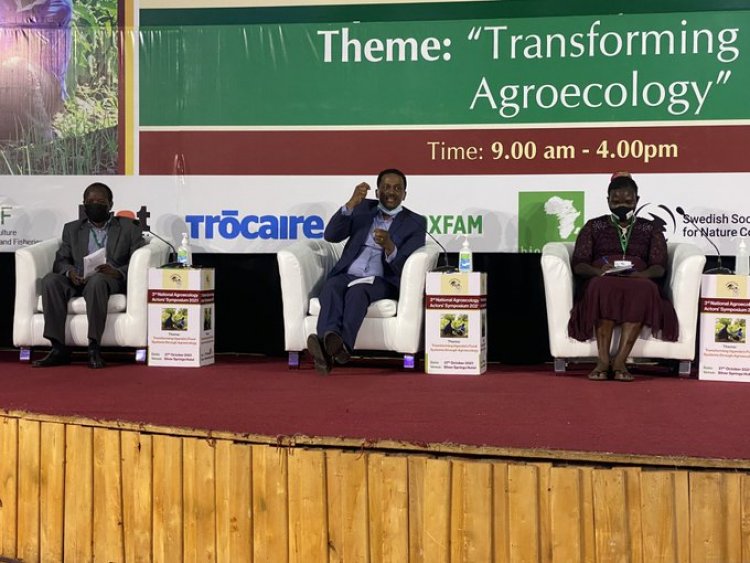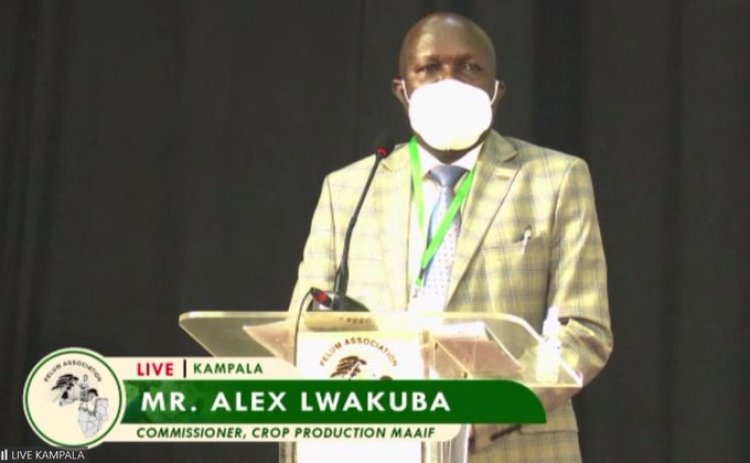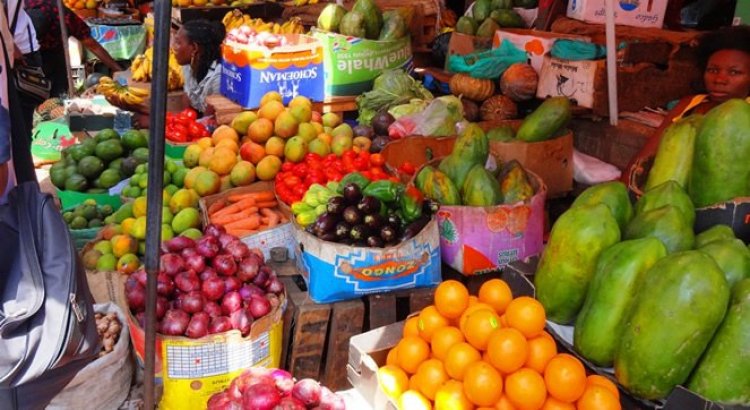PELUM, partners calls for scaling up of agroecology to boost food security and save the climate
Scaling up ecological organic agriculture will foster biodiversity, ensure food security, increase farmers income as well as saving the climate that will be relatively resilient to the impacts of climate change.

Actors in agroecology have called upon all stakeholders to use available and new initiatives to scale up ecological organic agriculture to foster biodiversity that is relatively resilient to the impacts of climate change, sustain ecosystems and tap into the knowledge, practices and innovations of local communities that can lead to increased food security and farm incomes.
Though Uganda has one of the fastest-growing organic certified lands in Africa with internationally certified organic farmers, the first and second-largest certified farmers in Africa, there is limited provision of tailored and strategic support to farmers with a deliberate decision to practice organic agriculture and tap into the wide potential it possesses nationally, regionally and internationally through certification, implemented policies among others.
During the 3rd Annual National Agroecology Actors’ symposium (NAAS) organized by PELUM Uganda and partners held on 27th October at Silver Springs, Bugolobi, the stakeholders in agro ecology observed that there is need to strengthen the agroecology movement through proportioning integration of agroecology in policies and programme, support up scaling of the practice, supporting small holder farmers to get certification of organic food among others.
The Board Chairman Participatory Ecological Land Use Management (PELUM) Uganda, Christopher Kyeswa highlighted that in order to address climate change and its effects, low productivity of organic foods, loss of biodiversity, there is need to implement the practices, and principles through strong partnerships with all stakeholders.
He added that the promotion of agroecology will go a long way in feeding the growing demand of organic products and expand the markets of the local farmers.
“Agroecology is key in fostering resilience to the impacts of climate change and its effects, sustaining ecosystems, increasing food security and farm incomes. If we implement the practices and principles, we will overcome low of production, loss of biodiversity. We need to strengthen the existing and new partnerships” he said
The theme of the 3rd NAAS symposium was “Transforming uganda’s food systems through agroecology.

The Commissioner, Crop Production Ministry of Agriculture Animal Industry and Fisheries (MAAIF) Alex Lwakuba pictured above said that after the launch of the National Organic Agriculture Policy (NOAP), there is need to operationalise it as an opportunity to be tapped into to promote agroecology.
He said that there is need include agrocecology strategies in the NOAP and address the existing gaps in the legislation, infrastructure and other tools which he is a starting stage to promote and scale up agroecology in Uganda.
“There is an enabling environment for scaling up agroecology, we have policies like the National Organic Agriculture Policy as a starting tool strengthen the scaling up of agroecologgy. Let’s use the existing opportunities to promote the practice, research, train farmers to instill the agroecology principles” he said
He added that Uganda is practicing Agroecology without being certified. We need to accelerate financing of the policy to get facts on the ground to strengthen market development and supply chains.
The National Organic Agriculture Policy (NOAP) is a unique policy that was intended to enable the Ministry of Agriculture, Animal Industry and Fisheries (MAAIF) to regulate, coordinate and harmonize the efforts towards harnessing Uganda’s competitiveness through organic agriculture.

According to FAO/WHO, Agroecology which features majorly with organic agriculture is a holistic production management system which promotes and enhances agro-ecosystem health, including biodiversity, biological cycles, and soil biological activity.
It emphasises the use of management practices in preference to the use of off-farm inputs, taking into account that regional conditions require locally adapted systems. This is accomplished by using, where possible, agronomic, biological, and mechanical methods, as opposed to using synthetic materials, to fulfil any specific function within the system.












